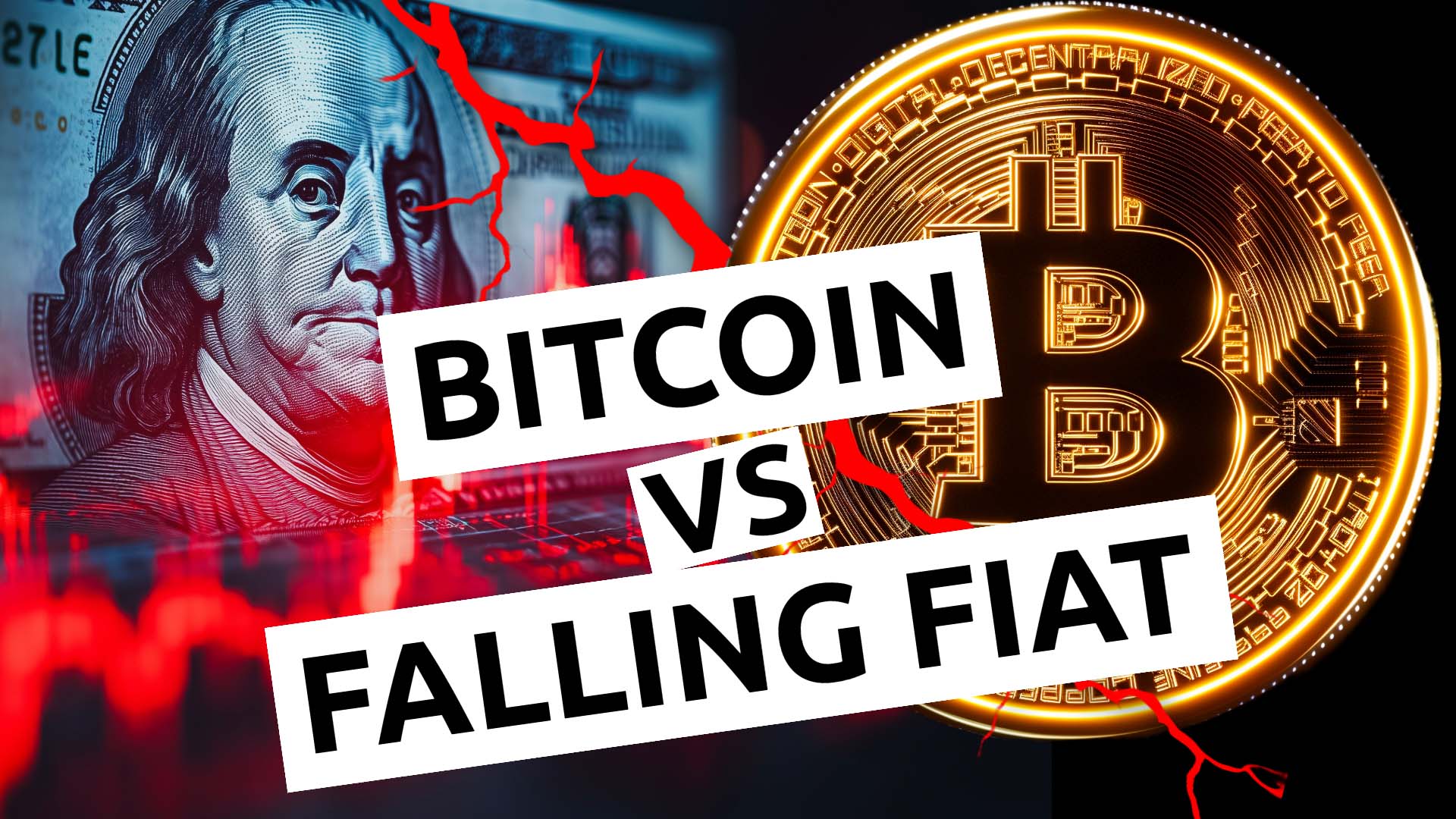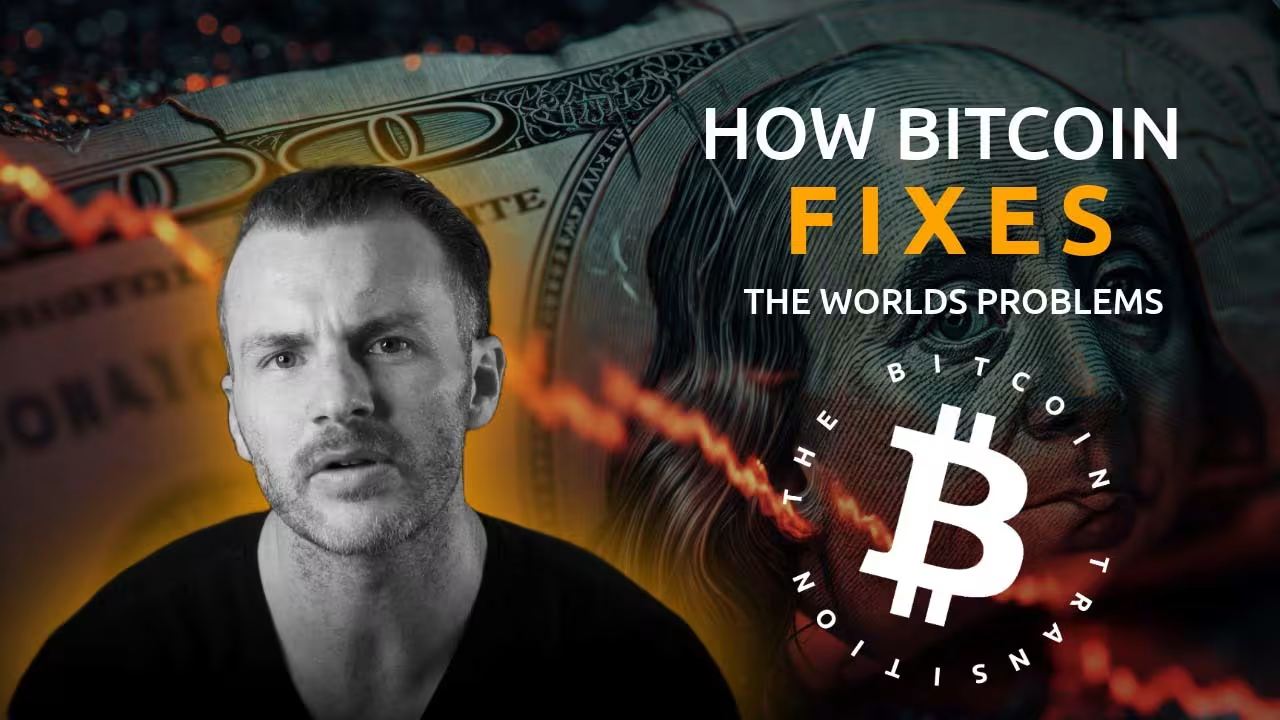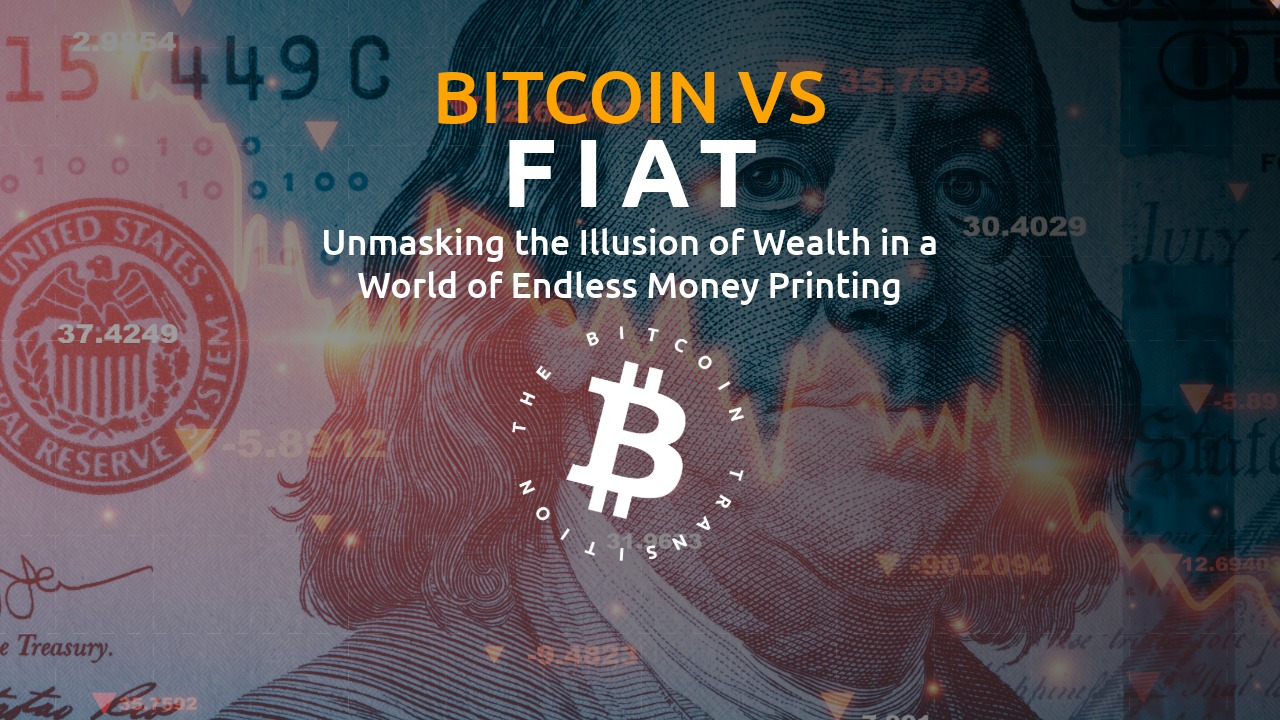A Bitcoin Economy: Prioritizing Value and Minimalism in a World of Trade Wars and Fiat Collapse
Trade wars and inflation expose fiat’s flaws. Bitcoin offers a path to a minimalist, value-driven global economy.

Introduction
The escalating trade war between the U.S. and China is exposing the fragility of the global fiat system—a system built on debt, inflation, and the pursuit of endless growth. On April 12, 2025, Yahoo Finance reported that China has raised tariffs on U.S. goods to a staggering 125%, a retaliatory move amid the Trump administration’s focus on targeting China with trade policies. This intensification of the U.S.-China trade conflict, which has already plunged global markets into chaos, underscores a broader trend: the world’s reliance on the U.S. dollar and fiat money is faltering. Meanwhile, nations like China and Russia are accelerating their de-dollarization efforts, with reports dating back to 2020 noting that their trade settlements in USD have fallen below 50% for the first time, and more recent whispers suggesting they’re exploring Bitcoin for transactions. This global shift provides a perfect opportunity to reimagine the future: what if we moved to a Bitcoin-based economy, rooted in hard money principles and Austrian economics, where value and quality trump growth and quantity? Let’s explore how such a system could foster a more minimalistic, meaningful way of life.
1. The Fiat System’s Flaws: A World of Cheap Junk and Endless Growth
The fiat system, where central banks can print money at will, thrives on inflation and debt. This structure devalues savings over time, pushing individuals, companies, and governments to spend and borrow rather than save. Why hold onto money that loses value every year? Why build for the long term when short-term growth metrics—like quarterly earnings or GDP—dominate? This has created a global economy obsessed with growth at all costs, often at the expense of quality and sustainability.
The U.S.-China trade war highlights this perfectly. For decades, China has been the world’s manufacturing hub, flooding markets with cheap goods—often low-quality, disposable products—enabled by a debt-fueled U.S. consumer base. But as the trade war escalates, with China’s tariffs on U.S. goods now at 125% and the U.S. imposing its own measures, this model is breaking down. Global supply chains are shifting, with countries like India and Vietnam stepping in as alternatives, as noted in a 2024 CNBC report highlighting India’s ambition to dethrone Vietnam as Asia’s top manufacturing hub. Yet, the underlying issue remains: the fiat system incentivizes overproduction and materialism, filling the world with cheap, disposable junk while neglecting enduring value.
2. Bitcoin’s Deflationary Promise: Rewarding Savings and Value
Bitcoin offers a radical alternative. With a fixed supply of 21 million coins, Bitcoin is inherently deflationary—its value tends to increase over time as demand grows against a limited supply. This aligns with Austrian economics, which champions sound money that cannot be manipulated by central authorities. Austrian thinkers like Ludwig von Mises argued that sound money encourages saving over spending, as people are incentivized to preserve their wealth rather than watch it erode through inflation.
In a Bitcoin-based economy, the incentive to save becomes dominant. When money appreciates in value, as Bitcoin does in a deflationary environment, people are less likely to spend on frivolous, low-quality goods. Instead, they prioritize purchases that offer real, lasting value—think durable products, meaningful experiences, and investments in personal growth. This shift naturally fosters a more minimalistic lifestyle, where quality trumps quantity, and the endless chase for materialistic excess gives way to intentional, value-driven living.
3. Companies in a Bitcoin Economy: Value Over Growth
In the current fiat system, companies are incentivized to chase growth through overproduction, speculative investments, and debt-fueled expansion. The U.S.-China trade war has exposed the unsustainability of this approach—China’s export-driven model, reliant on cheap labor and lax standards, is faltering as global trade dynamics shift. In a Bitcoin economy, companies would face a different set of incentives, one that prioritizes value creation over mindless growth.
• Quality Over Quantity: In a deflationary Bitcoin economy, consumers are more discerning with their appreciating money. Companies can no longer rely on flooding markets with cheap, disposable goods—they must produce high-quality, durable products that justify the expenditure of a scarce, valuable currency. Imagine a world where a phone is built to last a decade, or where furniture is crafted with longevity in mind, rather than designed to break after a few years.
• Sustainable Innovation: The fiat system’s focus on growth leads to waste—overproduction, planned obsolescence, and environmental degradation. In a Bitcoin economy, companies must adopt sustainable models that align with consumer saving habits. They’ll innovate to reduce waste, improve efficiency, and create products that resonate with a minimalistic ethos, focusing on what truly matters to consumers.
• Long-Term Focus: With Bitcoin, the cost of capital increases because money isn’t cheap—there’s no central bank to print more. Companies can’t rely on debt to fuel growth; they must plan for the long term, investing in research, building trust with customers, and creating products that endure. This aligns with Austrian economics’ emphasis on real capital formation over artificial credit expansion, fostering a more stable and value-driven economy.
4. A Minimalistic Life: Quality Over Materialism
The fiat system’s inflationary nature has fueled a culture of materialism, where people are encouraged to buy more, consume more, and chase the next shiny thing. The result is a world overflowing with cheap, low-quality goods—plastic trinkets, fast fashion, and gadgets that break within a year. This not only harms the environment but also leaves people feeling unfulfilled, trapped in a cycle of endless consumption.
A Bitcoin economy flips this on its head. When money appreciates, people are incentivized to save and spend thoughtfully. This naturally leads to a more minimalistic lifestyle, where the focus shifts from accumulating stuff to cherishing quality. Instead of buying five cheap shirts that fall apart quickly, you invest in one well-made shirt that lasts for years. Instead of filling your home with disposable decor, you choose a few meaningful pieces that bring joy. This isn’t just about economics—it’s about a cultural shift toward intentionality, sustainability, and true satisfaction.
5. The Global Shift: De-Dollarization and Bitcoin’s Rise
The U.S.-China trade war is part of a larger trend: the decline of the U.S. dollar’s dominance. As Yahoo Finance noted on April 12, 2025, global markets are in chaos, with Europe emerging as a safer bet amid the U.S.’s trade skirmishes. Meanwhile, China and Russia have been working to reduce their reliance on the dollar for years—since at least 2020, when their USD trade settlements dropped below 50%. More recently, there’s buzz that they’re exploring Bitcoin for transactions, a logical step in their de-dollarization journey.
Bitcoin offers a neutral, decentralized alternative that no single country can control. As more nations adopt Bitcoin for international trade, the global economy will shift toward a hard money standard, amplifying the deflationary dynamics described above. Countries like India and Vietnam, poised to become manufacturing hubs as companies move away from China, could accelerate this transition by embracing Bitcoin-based trade. The fiat system’s days are numbered, and Bitcoin is paving the way for a new economic order.
6. Countering the Critics: Why Deflation Works
Critics of a deflationary economy often argue that it stifles spending, as consumers delay purchases expecting lower future prices, leading to economic stagnation. Mainstream economists, as noted in a 2021 Medium article, claim this creates a downward spiral in demand. But this view misses the mark.
First, people don’t stop spending entirely in a deflationary environment—they spend on what they need and what provides real value. Essentials like food, shelter, and education will always have demand, as will high-quality goods that justify their cost. What declines is wasteful spending on low-value junk, which is the goal: a Bitcoin economy eliminates excess and focuses on what matters.
Second, Austrian economics argues that an inflexible money supply like Bitcoin’s prevents the artificial booms and busts of the fiat system. The 1970s inflation crisis in the U.S., triggered by abandoning the gold standard, shows how fiat money creates instability. Bitcoin’s fixed supply ensures stability, encouraging saving and prudent investment over speculative excess.
Finally, the notion that monetary policy is necessary to “adjust” for economic changes is a fiat-era myth. The market, left to its own devices, allocates resources more efficiently than central planners. Bitcoin’s decentralized nature ensures that no single entity can distort the money supply, allowing the economy to self-regulate through real supply and demand.
7. A Vision for the Future: Minimalism and Value in a Bitcoin World
The U.S.-China trade war is a symptom of a deeper problem: the fiat system’s obsession with growth over value. As global trade dynamics shift—with nations de-dollarizing and exploring Bitcoin—the opportunity arises to build a better economic system. Imagine a world where companies compete by creating high-quality, lasting products, not by flooding markets with cheap junk. Imagine a life where you save with confidence, spend intentionally, and live minimally, surrounded by things that truly matter.
Bitcoin isn’t just a hedge against the dollar’s decline—it’s a blueprint for a new economic paradigm. A deflationary, hard money system rooted in Austrian principles can foster a culture of value, quality, and minimalism, leaving behind the materialistic excess of the fiat era. The world is changing, and those who embrace this shift will thrive in the value-driven economy of tomorrow.


